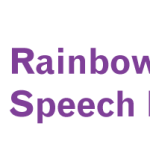SO YOU FIX STUTTERS AND LISPS RIGHT?
 So you fix stutters and lisps right? As a speech pathologist, I get asked this question a lot. So what does a speech pathologist actually do? According to our national body Speech Pathology Australia the scope of practice ranges from working with newborns through to geriatrics with individuals with disabilities relating to:
So you fix stutters and lisps right? As a speech pathologist, I get asked this question a lot. So what does a speech pathologist actually do? According to our national body Speech Pathology Australia the scope of practice ranges from working with newborns through to geriatrics with individuals with disabilities relating to:
- Speech (lisps, speech sounds, phonological disorders)
- Fluency (stuttering)
- Voice
- Resonance
- Receptive language
- Expressive language
- Pragmatics and social skills
- Cognitive communication
- Problem Solving
- Emergent literacy and literacy
- Sensory awareness
- Eating, drinking and swallowing
- Alternative and augmentative communication
So we do a lot more than lisps and stutters. But not every speech pathologist does all of the above in their day to day practice. I for one have not worked with a child who has a stutter as a speech pathologist. Until I had a child who developed a stutter- and then I took him to a speechie who had done extra training in this area (but that’s another blog post).
So what do I do? Since I graduated, I have been working in the field of complex disability. Prior to starting private practice I worked at Disability Services in the early intervention team and complex adult team. I saw kids with multiple disabilities up to 6 years, found augmentative and alternative communication solutions for lots of little ones who were non-verbal or low verbal, ran prep for prep groups, SOS food school groups and I also saw complex adults with severe swallowing and communication issues too. I also worked at Vision Australia with 0-18 year old’s and really developed a passion for the role of a speechie working in vision impairment particularly CVI.
I love working with adults and children with multiple disabilities which impact on their communication, eating and drinking. The disabilities I have most experience working with include: Autism Spectrum Disorder (ASD), Cerebral Palsy, vision impairment, hearing loss, Down Syndrome, Smith Magenis Syndrome, Attention Deficit Hyperactivity Disorder, Dravet syndrome, Cerebral Visual Impairment (CVI), Childhood Apraxia of Speech (CAS), Rhett’s, Ohtahara Syndrome, William’s Syndrome and a lot of other undiagnosed developmental disabilities yet to be named. I love the challenge and complexity of this population. I especially love working with little children who have just been diagnosed and their families helping them to lead their best life.
So if a client has goals relating to: language, interaction and engagement, social skills, Alternative Augmentative Communication (that’s another blog post) swallowing or feeding issues I feel confident working on goals relating to those issues. I have built my private practice around helping people who have these complex needs that many other private practices don’t cater too. But they are great with lisps and stutters! So to be really honest getting to work with people with complex multiple disabilities, non-verbal, cognitive impairments, behaviour issues etc.… really excites me. That’s totally my comfort zone! So if you do contact me about a lisp I will always refer you on to someone who does know what to do 😊
Written by Calla Dolton BCi, BEd(sec), MSpPath, principal speech pathologist and director of RSP


